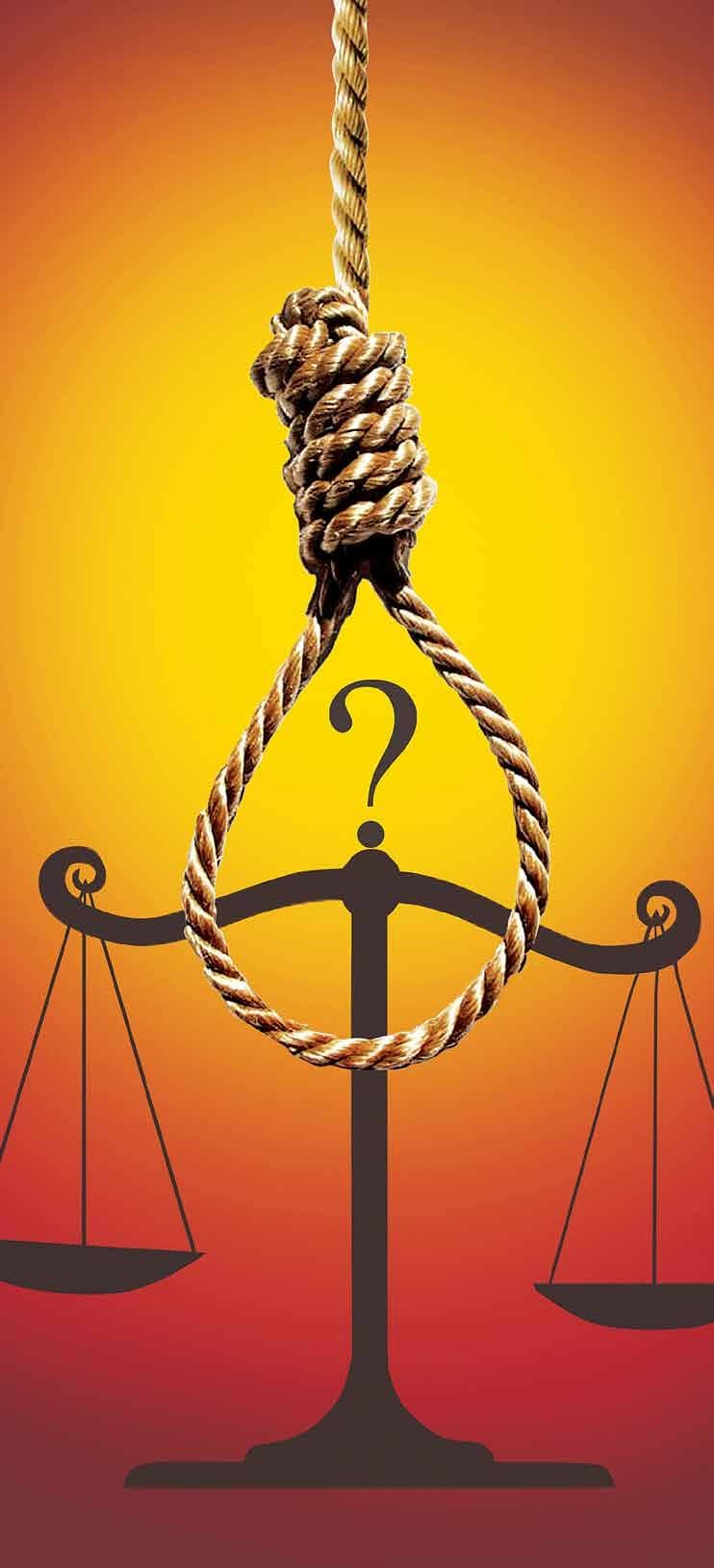
IN 2006, a Supreme Court bench of justices S.B. Sinha and Dalveer Bhandari commuted the death term of Amrit Singh, then 33, who was convicted of rape and murder of a seven-year-old girl three years earlier in a Punjab village. Both the trial court and the high court had held it to be a fit case for death sentence but the top court thought otherwise. “The manner in which the deceased was raped may be brutal, but it could have been a momentary lapse on the part of appellant (convict), seeing a lonely girl at a secluded place,” Justice Sinha had said in the judgment, converting the death sentence to life term.
In 2004, Dhananjoy Chatterjee, 39, was hanged at the Alipore jail in Calcutta for a similar crime— the rape and murder of a minor at her home in 1990. He was a guard of the apartment where the girl lived.“The courts must not only keep in view the rights of the criminal but also the rights of the victim of a crime and society at large while considering the imposition of appropriate punishment,” an SC bench of judges Madan B. Lokur and K.S. Radhakrishnan had said while upholding the death sentence to convict.
The two cases are classic examples of how judges assess the severity of a crime in their own way, often leading to different degrees of punishment for crimes of similar nature. Such drastic variations have been apparent in hun dreds of judgments that the apex court has delivered over a period of time, legal experts say. The argument of “momentary lapse” of reason is often applied to rape and murder cases to lessen the punishment, they add. As a debate rages in the country over the “delay” in hanging four convicts in the 2012 rape and murder of a 22yearold paramedic in Delhi, the spotlight is firmly on the judiciary in view of the flurry of petitions filed by the guilty.
This story is from the March 09, 2020 edition of Outlook.
Start your 7-day Magzter GOLD free trial to access thousands of curated premium stories, and 9,000+ magazines and newspapers.
Already a subscriber ? Sign In
This story is from the March 09, 2020 edition of Outlook.
Start your 7-day Magzter GOLD free trial to access thousands of curated premium stories, and 9,000+ magazines and newspapers.
Already a subscriber? Sign In

No Singular Self
Sudarshan Shetty's work questions the singularity of identity

Mass Killing
Genocide or not, stop the massacre of Palestinians

Passing on the Gavel
The higher judiciary must locate its own charter in the Constitution. There should not be any ambiguity

India Reads Korea
Books, comics and webtoons by Korean writers and creators-Indian enthusiasts welcome them all

The K-kraze
A chronology of how the Korean cultural wave(s) managed to sweep global audiences

Tapping Everyday Intimacies
Korean filmmaker Hong Sang-soo departs from his outsized national cinema with low-budget, chatty dramedies

Tooth and Nail
The influence of Korean cinema on Bollywood aesthetics isn't matched by engagement with its deeper themes as scene after scene of seemingly vacuous violence testify, shorn of their original context

Beyond Enemy Lines
The recent crop of films on North-South Korea relations reflects a deep-seated yearning for the reunification of Korea

Ramyeon Mogole?
How the Korean aesthetic took over the Indian market and mindspace

Old Ties, Modern Dreams
K-culture in Tamil Nadu is a very serious pursuit for many